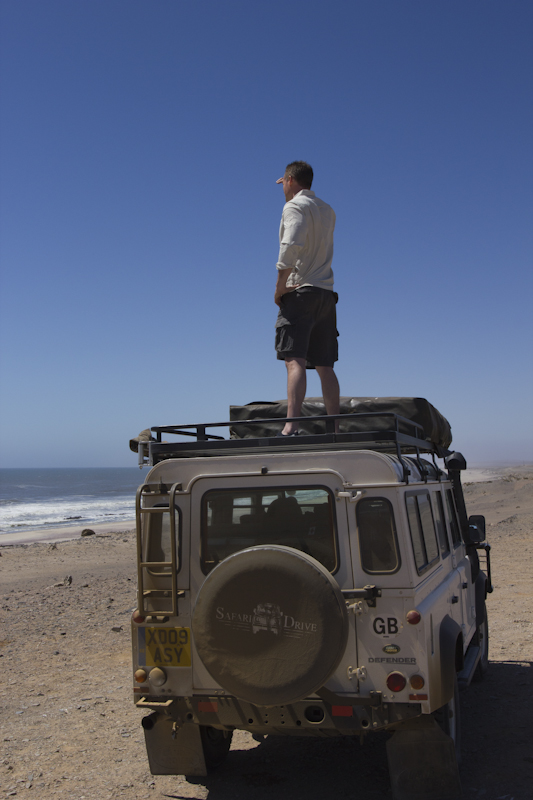
In recent blogs, we’ve talked about the future of the European Union, and other changes we might see in the wake of the Great Pandemic.
In this instalment, I’d like to bring things closer to home and talk about the future of travel.
The entire travel and tourism industry took a massive blow, and some of it is very unlikely to recover.
But will we stop traveling after COVID-19? What if there isn’t a vaccine, or a reliable cure?
Are certain segments of the travel industry doomed?
Here are my rambling thoughts as a lifelong traveler. I don’t have a crystal ball. I don’t even have a soccer ball, given my total disinterest in sports. I just have educated guesses, so please take them with a grain of sea salt.
Okay, here goes. Let’s start with the obvious.
Cruising hits an iceberg
Few corners of the travel industry got as much bad press during this pandemic as cruise ships.
Cruises went from floating hotel to floating petri dish faster than you can say, “You can’t dock here!”
I can see expedition cruises surviving this pandemic. The type that use small, specialized ice-hardened vessels to reach otherwise inaccessible places, like the backside of Antarctica or Franz Josef Land.
Those ships cater to a unique type of traveler who typically has lots of money as well as a love of obscure geography.
But the cheap mass-market Mediterranean cruises I used to see in Malta, and the typical Caribbean floating prisons, will take a major hit — to which I say, “Good riddance”.
The world could do with less of those floating polluters. And we certainly don’t need them swarming the Northwest Passage, which is where they seemed to be headed next.
The end of influencers?
If we’re fortunate, a major downturn in travel might put an end to the most recent tourism scourge: the age of the Instagram ‘influencer’.
You know the type. They push and shove into every “bucket list” destination with an eye-poking flurry of selfie sticks and abnormally long arms, trying desperately to get that perfect photo without anyone else in it, so they can convince an uninterested world that their vapid lifestyle is some sort of dream.
Bonus popularity points for girls in bikinis, or shirtless guys with six pack abs.
There are so many of these shallow people using the world as a backdrop to their narcissism that they’ve even dominated the “#travelwriter” hashtag on Instagram. I’d be surprised if they’re capable of reading a book, let alone writing one.
The world needs more self-proclaimed influencers like it needs a spike in carbon emissions.
Please COVID-19, put an end to ‘influencer’ travel once and for all.
Business travel takes a hit — airlines fail
Unfortunately, other reductions in travel will have more widespread effects.
Business travel will decline, in part because after working from home, companies will realize just how much they can accomplish remotely thanks to better video conferencing software.
We’re also likely to see fewer big conferences and trade shows.
All of this is good news if you’re running a company. So much business travel is unnecessary, or is people using the company dime for free trips to cool places like Japan or NYC.
But it’s bad news if you’re a traveler, because business travel is an airline’s bread and butter.
The major airlines are under no illusion that the situation will be resolved by summer. The CEO of Lufthansa said, “The situation could last for three months, six months or even longer. But even after it starts up again, air transport will not be able to connect the world again from one day to the next. It will take years for the industry to return to pre-crisis levels.”
Few people flying will mean a reduction in fleets. But that isn’t necessarily a bad thing, as airlines would get rid of older, less efficient aircraft first. And that’s good for the environment.
Lufthansa has already shut down GermanWings, it’s low cost branch, in order to shed planes.
We can also expect smaller, less stable airlines to fail.
Flybe went under soon after countries started issuing travel bans, but they were already on shaky ground. We will see others, especially airlines that aren’t boosted by state aid. I don’t see much future for struggling regional carriers like Air Malta, one-time government cash cows which haven’t managed to reinvent themselves as viable alternatives to competitors like Ryanair.
North American travel turns inward
I can see travel in North America changing, at least for the next couple years.
Watch for people to stay closer to home. Domestic travel goes up — especially travel in one’s own region. Self-contained RV’s see a surge in popularity. And cottages are the place to be.
I don’t think the appeal of the all inclusive winter resort trip will vanish for Canadians. A week in Cuba or Cancun really appeals to the sun-starved overworked part of the market. But I don’t see them picking up this year.
What about low cost Eurotravel?
Low cost airlines and short city breaks have been a European way of life for over two decades.
There’s nothing like it in North America. We can fly from Berlin to Madrid for €30 each. Sure, this doesn’t include extras like checked bags or pre-assigned seats, but it’s easy to do a weekend trip using just the tiny carry on you’re allowed for free. And if you know how to use their system and don’t book last minute, those kinds of cheap fares are easy to find.
We don’t think of going to Bulgaria or Spain as international travel, either. It’s a domestic flight for those of us in the Schengen zone. Granted, this could change if the Schengen agreement collapses and hard borders make a comeback. But I suspect the mental conception of cheap Eurotravel will be slower to fade.
Low cost airlines connected the continent like nothing before — and changed some cities for the worse with football hooligan and stag party tourism.
The numbers will be lower than they were one year before, but I think people will be itching to take off on such trips the moment the quarantine is lifted.
I can’t see the low cost model vanishing entirely unless airlines fail and the flight costs go back up to what they used to be.
That being said, I do see some of the smaller budget airlines going under. I think it’ll come down to Ryanair and EasyJet, the two earliest companies in the low cost market.
Don’t forget that Ryanair is still the biggest airline in Europe. I’d put my money on it surviving. Michael O’Leary is a shark. He’s already predicting the sort of deals that have me plotting journeys in my head: “When this thing is over,” he said, “there is going to be such massive discounting going on that there will be a large spike upward in travel and tourism for a period of time”.
Let’s take back the night (train)
But what if air travel costs go up after those initial “come back to me” deals fade away?
A spike in ticket prices should also result in an increase in short distance rail travel, at least in well-connected regions like Europe. Rail here is electric, which should help boost cleaner energy.
Bringing back sleeper carriages could boost medium to longer distance rail travel, too. And that would be a very good thing. Sleeper car is such a pleasant way to travel.
But flight costs have to rise enough to make it viable. Right now, train travel in Germany is far more expensive than flying.
Mandatory vaccines
If a vaccine is developed for COVID-19, I think we’ll see an increase in entry requirements: proof of vaccination (like some countries require for yellow fever), and mandatory 14-day quarantine for anyone coming from a hotspot.
Remote places? That depends…
I can see other types of travel declining — especially with the spectre of economic and political instability on the immediate horizon.
I saw something similar happen right after 9/11. I was leaving Japan for a long journey through Mongolia, China and Southeast Asia. So many friends urged me not to go because they felt the world had become a more dangerous place overnight.
It hadn’t. It only felt that way.
Of course this time could be different. A massive global recession will topple governments, and conflicts could break out over resources. The Middle East is at particular risk should world oil prices remain in the basement.
Look for travel to familiar places to recover much more quickly than travel to regions like Africa. Especially in regions that are hardest hit economically.
But the current climate of uncertainty might contain opportunities for people like me.
The view from Murdistan
If the current pandemic marks the demise of low cost airlines, travel may become more difficult again — or at least less easy.
And that could actually benefit someone like me if it spells the end of the “weekend instagram-snapping everyone’s-a-travel-writer” era.
You see, I’m a veteran of the long, slow travel that came before all this. The sort of months-long uncomfortable independent wandering that doesn’t lend itself to product placement pictures.
And that sort of travel will always be with us because wandering is deeply embedded in our DNA. I don’t know about you, but I find that idea exciting. There are vast parts of the world I still haven’t encountered, and I want to go find out how people live there.
That’s what I want to leave you with in this time of uncertainty. We’re not able to travel right now, but you can still focus on things you can control.
I really want to travel Central Asia next year. Yes, I’d put it off if the disease is still raging, or if global instability made those regions truly dangerous. But I can still do the reading and research while I’m stuck at home with my maps.

Get your FREE Guide to Creating Unique Travel Experiences today! And get out there and live your dreams...
